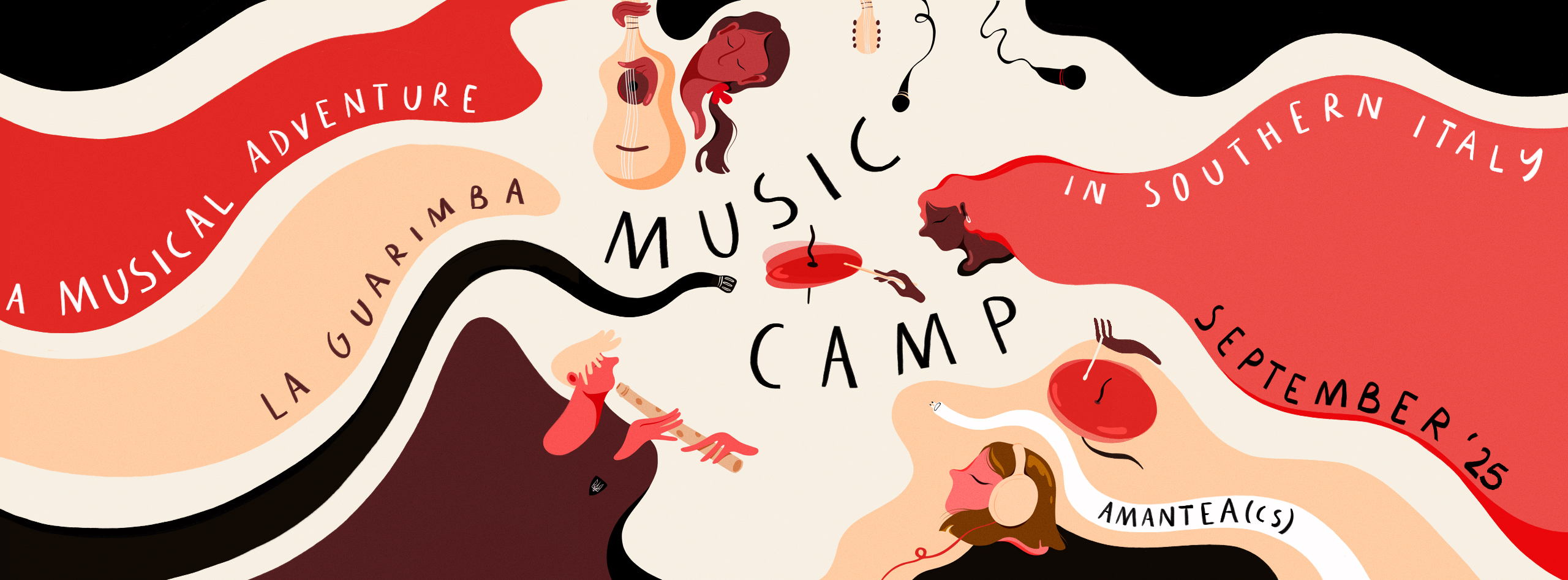The second edition of the Music Camp took place this year from September 5th to 21st in Amantea, Southern Italy. The music residency was carried out thanks to the support of The Embassy of Ireland and The Embassy of the Netherlands. Last August, La Guarimba opened a multifunctional space and library called La Piccola Biblioteca di Amantea at Via Mazzini, 26. Here we have a study room, conference and projection room and a music studio.
The aim of the Music Camp is to foster creativity, collaboration and encourage the musicians to focus on the process of making music to produce something new. We aim to introduce the musicians to creative exploration and encourage them to step out of their comfort zone.
Our intention is to support the musicians through whatever process and creative path they may take and to nurture that creativity. We also want to promote Calabria’s culture and music in this process, in the hopes that the traditional style inspires them.


























